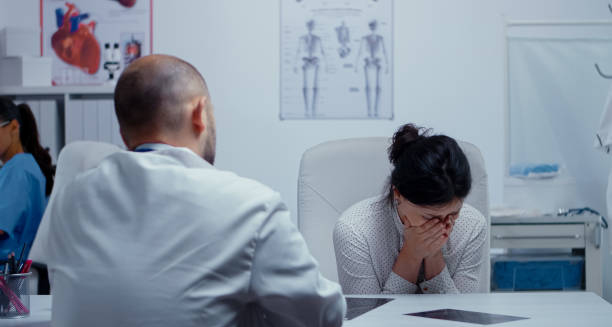Treatment of Generalised Anxiety Disorder
The treatment of generalised anxiety disorder is most effective when it combines psychological therapy, lifestyle changes, and—when appropriate—medication. Generalised anxiety disorder is a manageable condition, and most individuals who receive the right treatment experience a significant reduction in symptoms and an improved quality of life.
Treatment must be tailored to the individual, considering their symptom severity, preferences, age, coexisting conditions, and previous treatment history.
Psychological Therapies
Psychotherapy, particularly cognitive behavioural therapy (CBT), is the most evidence-based treatment for GAD.
Cognitive Behavioural Therapy (CBT)
CBT helps individuals:
Identify and challenge unhelpful thought patterns (e.g. catastrophising or overgeneralising)
Reframe worries in a more realistic way
Develop practical coping strategies
Gradually face situations that trigger anxiety (exposure techniques)
CBT is often delivered over 8–20 weekly sessions, either one-on-one or in a group setting. It empowers individuals to understand how thoughts, feelings, and behaviours are interconnected.
Acceptance and Commitment Therapy (ACT)
ACT helps people accept distressing thoughts rather than struggle against them. It encourages commitment to actions aligned with personal values, despite anxiety.
Mindfulness-Based Therapies
Mindfulness-based stress reduction (MBSR) and mindfulness-based cognitive therapy (MBCT) teach individuals to observe thoughts non-judgementally, helping to reduce emotional reactivity and improve present-moment awareness.
Medication
Medication may be recommended for moderate to severe GAD, particularly when therapy alone is not sufficient.
SSRIs and SNRIs
Selective serotonin reuptake inhibitors (SSRIs) such as sertraline, fluoxetine, and escitalopram are first-line medications
Serotonin-norepinephrine reuptake inhibitors (SNRIs) like venlafaxine and duloxetine may also be used
These antidepressants help regulate mood and reduce anxiety by increasing neurotransmitter availability
It can take 2–6 weeks for medication to take effect. Side effects are usually mild and may include nausea, sleep changes, or increased anxiety at first, which typically improves with time.
Other Medications
Pregabalin, originally developed for epilepsy, has shown effectiveness in reducing GAD symptoms
Benzodiazepines (e.g. diazepam, lorazepam) may be prescribed short-term for acute anxiety but carry a risk of dependence
Buspirone and beta-blockers may also be considered in specific cases
All medication should be prescribed and monitored by a qualified practitioner.
Lifestyle Changes
Certain lifestyle habits can significantly impact anxiety levels:
Regular physical activity reduces cortisol and increases endorphins
Sleep hygiene helps restore emotional balance
Limiting caffeine, alcohol, and processed sugars can improve regulation of energy and mood
Practising deep breathing, yoga, or progressive muscle relaxation may reduce physical symptoms of anxiety
Digital and Self-Help Resources
In the UK, the NHS offers access to:
Online CBT programmes (e.g. SilverCloud or Living Life to the Full)
IAPT (Improving Access to Psychological Therapies) services for guided self-help
Apps and tools that promote mindfulness, journalling, or relaxation
Treatment of Generalised Anxiety Disorder
Combining therapy, lifestyle changes, and medication often yields the best outcome. The treatment of generalised anxiety disorder is not about erasing all anxiety but about helping individuals manage it in a way that no longer dominates their lives.


